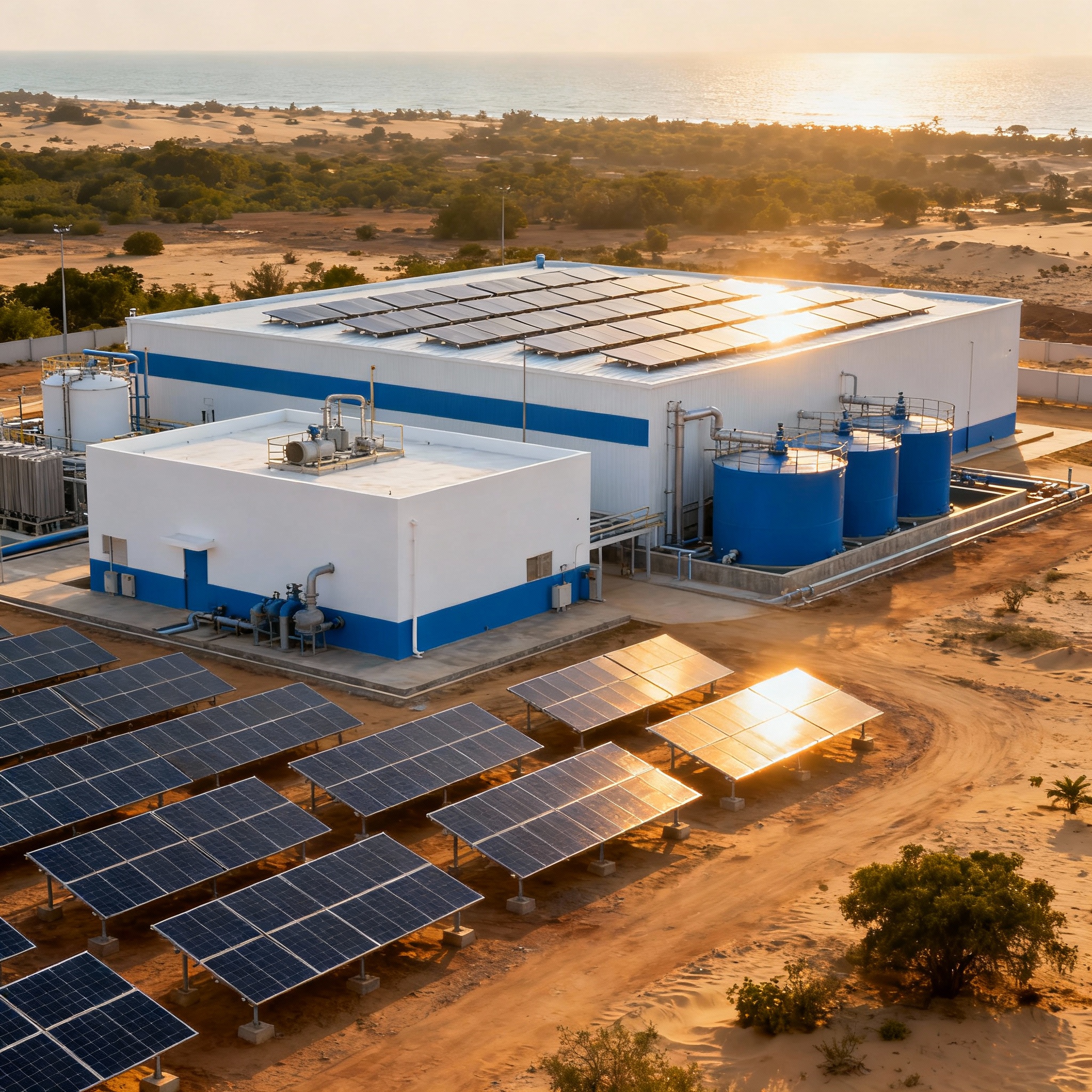Sustainable Water Sector Shifts

Q1. Could you start by giving us a brief overview of your professional background, particularly focusing on your expertise in the industry?
I am a mechanical engineer by background and have worked across various industries, including water treatment, wastewater treatment, and desalination. Currently, my focus is on desalination and brine water treatment technologies that enhance water optimization in desalination plants.
Q2. What government policies, subsidies, or regulatory frameworks are driving increased adoption and investment security for renewable-powered desalination projects?
Governments are introducing new frameworks and regulations that make the use of renewable energy in desalination projects compulsory, thereby promoting sustainable development and supporting carbon-neutral water treatment.
In addition, public-private partnerships are being encouraged to leverage government support, lower investment risks, and capitalize on private sector innovation and efficiency.
Q3. How do current advances in energy-efficient desalination technologies improve project IRRs and lower operational costs compared to conventional systems?
Recent advances in energy-efficient desalination, such as modern Energy Recovery Devices (ERDs) and next-generation pressure membranes, significantly improve project IRRs and lower operational costs compared to conventional systems. These technologies reduce energy consumption by up to 60%, minimize maintenance needs, and extend asset lifespans—making projects more financially attractive and environmentally sustainable.
Q4. How are advances in energy recovery devices and AI-based smart controls improving the cost-effectiveness and scalability of desalination plants?
AI-based smart controls and instrumentation reduce control losses, optimize ERD performance, and enable adaptive management. This enhances overall plant reliability, improves operational efficiency, and enables rapid restoration after outages or process disruptions, making desalination plants more cost-effective and scalable.
Q5. What are the most significant innovations in resource recovery from wastewater that add tangible economic value and enhance sustainability credentials?
Nutrients recovered from sewage, such as nitrogen and phosphorus, can be reused as agricultural fertilizers, replacing synthetic inputs and closing nutrient loops for greater sustainability. Additionally, biogas generated from sewage sludge through anaerobic digestion can be used for electricity generation, heating, or as vehicle fuel, directly offsetting fossil fuel consumption and reducing greenhouse gas emissions.
Together, nutrient recovery and biogas production enable a circular economy approach, transforming waste streams into valuable resources for both food and energy systems.
Q6. What future product developments or emerging technologies have the greatest potential to disrupt current market dynamics and create new value pools?
The current market largely operates on established practices, with past R&D focused on improving membrane recovery and brine utilization. However, the integration of AI-driven data technologies is now creating significant shifts in the water sector.
Data-based process optimization will allow enhanced plant efficiency and performance improvements, driving new opportunities and unlocking fresh value pools in the market.
Q7. If you were an investor looking at companies within the space, what critical question would you pose to their senior management?
I would ask senior management about the scale of their investment in training and R&D to develop practical tools for process optimization.
Specifically, I would want to know how much budget is allocated to creating new tools, documenting industry case studies, and applying learnings from completed projects to ensure continuous improvement.
Additionally, I would be interested in understanding how these initiatives align with long-term sustainability objectives, particularly in terms of their contributions to the UN Sustainable Development Goals. For example, I would want to know how the company ensures that innovations in efficiency and optimization not only lower costs but also minimize environmental impact, conserve resources, and support sustainable development for future generations.
Comments
No comments yet. Be the first to comment!
